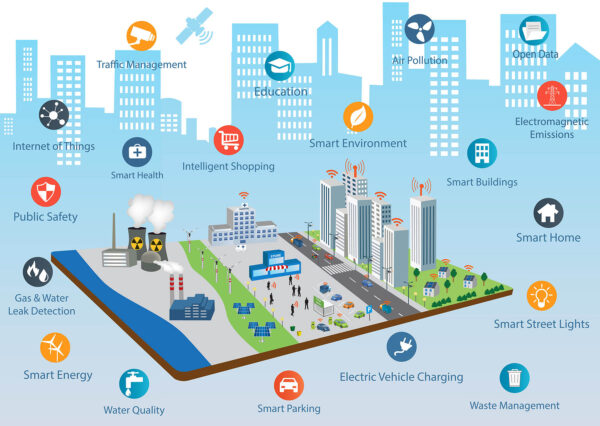Washington, D.C., renowned for its political significance, is rapidly gaining recognition as a thriving tech hub. As the tech industry continues to flourish in the nation’s capital, savvy investors are eyeing the real estate opportunities that come with it, driven by innovations in construction project financing. In this article, we’ll delve into why investing in D.C.’s tech hub is a smart move and explore the real estate prospects it offers, focusing on construction project financing as a pivotal component of real estate development.
The Rise of D.C.’s Tech Hub
A Growing Tech Ecosystem
Washington, D.C. is experiencing a tech renaissance. The city’s tech ecosystem has expanded significantly, with an influx of startups, tech companies, and venture capital investments. This growth is fueled by the proximity to government agencies, research institutions, and a highly educated workforce. Moreover, the integration of construction project financing is enabling rapid development of new tech spaces, making D.C. an even more attractive location for high-tech industries.
Diversification of Industries
While government and politics have long dominated D.C.’s landscape, the city is now diversifying its industries. Tech startups and companies are at the forefront, addressing a wide range of sectors, from cybersecurity and biotechnology to fintech and education technology. The diversification is supported by robust construction project financing options, which provide the necessary capital for innovative spaces that meet the specific needs of tech companies.
The Intersection of Tech and Real Estate
Rising Demand for Office Space
As tech companies expand their presence in D.C., the demand for office space has surged. Tech firms are seeking modern, flexible, and innovative work environments to attract top talent. This demand has driven new office developments and renovations, presenting real estate investment opportunities heavily supported by construction project financing. This financing plays a crucial role in transforming traditional office spaces into tech-friendly environments.
Co-Working and Shared Spaces
The rise of co-working and shared office spaces is another trend that aligns with the tech industry’s needs. Investors have the chance to capitalize on the demand for flexible workspaces catering to startups and small tech businesses. These investments are often made viable through construction project financing, which provides the funds needed to create adaptable and technologically equipped work environments.
Real Estate Investment Prospects
Commercial Properties
Investing in commercial properties, particularly office buildings, in D.C.’s tech hub is a promising avenue. High-quality, tech-enabled office spaces are in high demand, and rental income from tech tenants can be lucrative. The attractiveness of these investments is often enhanced by construction project financing, which allows developers to quickly adapt properties to meet the evolving demands of the tech sector.
Residential Real Estate
The growth of the tech industry has also driven demand for housing in the D.C. metro area. Real estate investors can explore opportunities in residential properties, including apartments and condos, to cater to tech professionals looking for housing options. Construction project financing is crucial here as well, providing the capital necessary to develop high-quality residential units close to tech job hubs.
Mixed-Use Developments
Mixed-use developments that combine commercial and residential spaces are gaining traction. These projects provide a holistic approach to urban living, attracting tech-savvy individuals who value convenience and amenities. Construction project financing supports these complex projects by enabling the simultaneous development of both commercial and residential components.
Factors to Consider
Location Matters
When investing in D.C.’s tech hub, location is crucial. Proximity to tech clusters, public transportation, and amenities can significantly impact the attractiveness of your investment property. Strategic use of construction project financing can enhance the viability of projects in prime locations, ensuring they attract the best tech tenants and residents.
Tech Tenant Profile
Understanding the needs and preferences of tech tenants is essential. Tech companies often prioritize modern amenities, flexible lease terms, and proximity to talent pools when choosing office spaces. Effective application of construction project financing helps cater to these specific needs, creating environments that are attractive to high-value tech tenants.
Market Trends
Stay informed about market trends and forecasts in the D.C. tech and real estate sectors. This knowledge will help you make informed investment decisions and identify emerging opportunities, with construction project financing providing the agility to capitalize on these trends quickly.
Conclusion: A Synergy of Growth
Investing in D.C.’s thriving tech hub presents a unique synergy of growth between the tech industry and real estate. The city’s tech ecosystem is flourishing, driving demand for both commercial and residential properties. By strategically positioning your investments in this dynamic market, you can benefit from the continued expansion of the tech sector while contributing to the evolution of the nation’s capital.
As D.C. cements its reputation as a tech powerhouse, seizing real estate opportunities in the heart of this thriving tech hub can be a rewarding endeavor. Stay attuned to the changing landscape, assess your investment goals, and leverage the potential of Washington, D.C.’s tech-driven future.





